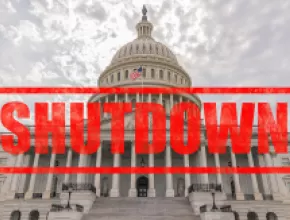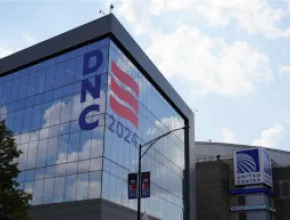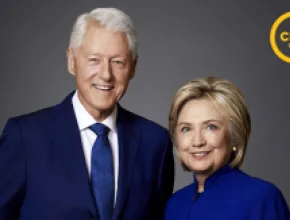The fallout from last spring’s scandal over extravagant event spending at the General Services Administration (GSA) has prompted drastic cutbacks in federal government meetings, disproportionately hurting venues all across the country.
At the GSA alone, 35 conferences were canceled by Acting Administrator Daniel Tangherlini after the agency’s then-head resigned in the wake of the public outcry over a 2010 conference in Las Vegas for 300 employees that cost $823,000.
Like the GSA, it appears that agencies throughout the federal government have cancelled meetings, delayed bookings for new meetings, and are holding more meetings at federal facilities.
Dramatic Fallout
At venues that target federal government group business like the National Conference Center, located in the Washington, D.C.-area, the fallout was quick and hard.
“We immediately lost close to $2 million in business this year from cancelled government meetings or government meetings that were shrunk,” says Eric Whitson, the center’s director of sales and marketing.
That figure, Whitson says, represents about 10 percent of the center’s projected government meetings business for this year.
“We were told [clients] couldn’t hold the meeting,” Whitson says. “There was a perception that any meeting would be considered a waste.”
In addition, federal group bookings also dried up nearly completely in the couple months before starting a slow recovery.
“April and May were zero,” Whitson admits.
He estimates an additional $3 million drop in projected revenue from lost bookings in those two months. A single government customer supplied a strong booking for June, but in July only one of the center’s three government-meetings account executives reached their sales goal, according to Whitson.
The cutbacks in government meetings that occurred this spring came in the wake of a directive by President Barack Obama in November for federal agencies to curtail their meetings and travel budgets by 30 percent in fiscal-year 2013.
“It’s been a tough couple of years for the government market,” Whitson notes
Despite the hit that venues like the National Conference Center took, venues that depend less on federal government meetings have weathered the storm better, according to Bob Gilbert, chief executive of the Hotel Sales & Marketing International.
“We’re not hearing a lot about it,” says Gilbert, referring to cancellations of federal meetings. “There were a flurry of cancellations and deferrals at the time, but meetings that were already contracted…many of them still happened.”
As an example, he pointed to a 300-person meeting of Western federal circuit court judges that proceeded this month in Maui.
“The group’s contract was such that it made sense to go forward with the meeting, but the organization made clear it will not be going back to Maui,” says Gilbert.
Under pressure from federal lawmakers, next year’s meeting was canceled, and the 2014 meeting is scheduled for the Hyatt Regency, in Monterey, Calif.—also a resort destination but perhaps one more palatable to potential critics due to its mainland location, resulting in generally lower travel costs over Hawaii.
It’s Not All Bad
The clamp-down on federal meetings has been a boon to some hoteliers as federal travelers seek lower-cost alternatives to full-service corporate hotels.
“The silver lining for our organization has been that the bulk of our portfolio is made up of economy and mid-scale properties, brands like Days Inn, Super 8, Howard Johnson,” says Ross Hosking, executive vice president of global sales for Wyndham Hotel Group.
“As a result,” he says, “not only do our hotels fit the sweet spot for the types of properties where Congress wants government employees to stay, but because of the increased oversight, we’re seeing increased trial of our brands by those travelers.”
Typical of other agencies, the GSA—which manages federal buildings—has tightened meetings oversight. Acting Administrator Dan Tangherlini initiated a detailed review of meetings spend and centralized the approval process for future event spending soon after the scandal broke. In July, Tangherlini announced a one-year hiring freeze and rescinded most executive bonuses.
In addition, agency officials in August told members of the House Transportation and Infrastructure Committee that the agency’s inspector general is examining at least 77 more meetings for possible wrong-doing.
Wasteful Spending?
Held between October 2010—when the Las Vegas conference took place—and April 2012, when the scandal surfaced, those conferences cost more than $6.7 million combined, according to agency officials.
Among the GSA conferences being investigated is a one-day, employee-recognition program in the Washington area which cost nearly $270,000. Held the month after the 2010 GSA conference in Las Vegas, the recognition ceremony sparked fresh outrage when it was revealed this past July.
“We’ve known that there is a culture of waste, fraud and abuse within the many layers of GSA,” Rep. John L. Mica (R-Fla.), chairman of the House Transportation Committee, says in a statement. “This proves that this is a systemic problem that is rooted deeply within this organization.”
Among the spending items that re-ignited congressional ire were 4,000 picture frames showing time and temperature, at more than $28,000 total; and 4,000 drum sticks for a team-building exercise, at more than $20,000 total.
Nearly $105,000—more than one-third of the total event budget—was paid to the Gallagher & Gallagher marketing communications firm for event logistics and management, according to GSA Inspector General Brian Miller in a July letter to Congress.
Calling attention to outside event-planning expenditures, the GSA inspector general leveled criticism at GSA managers for the 2010 Las Vegas conference: "The M Resort's willingness to pay over $12,000 as a finder's fee strongly indicates that further discounts might have been available to GSA if GSA had contacted the hotel directly."
That outside management fees are subject to criticism suggests that outsourcing logistical planning is increasingly seen as an illegitimate expense, with the likely result that third-party planners can look forward to less government business and conversely government event planners will shoulder more work.
New Day, New Govt. Meetings Scandal
Outside management fees also seem to be an issue in a new government conference controversy which erupted in August and threatens to engulf the Department of Veterans Affairs.
The VA inspector general is investigating expenses for two training conferences at the Marriott World Center in Orlando, Fla. in July and August 2011 that cost a combined $5 million.
Among the monies spent was $52,000 on an actor and outside production company to create an 18-minute video parody of the opening scene from the movie, “Patton.”
Rather than criticizing the parody itself, Rep. Darrell Issa (R-Calif.), chairman of the House Oversight and Government Reform Committee, called out the outsourcing.
“Although the VA has videographers and editors on staff, the conference planners engaged a contractor to produce the video,” Issa wrote in an Aug. 13 letter to VA Secretary Eric Shinseki. Issa further wrote that the VA conferences “bear eerie similarities to the now-infamous” 2010 GSA conference in Las Vegas.
Among the other conference budget items Issa questioned was $84,000 spent on promotional pens, highlighters, hand sanitizers and USB drives. The VA inspector general also is investigating whether employees illegally accepted gifts such as free helicopter rides as part of their scouting venues for the conferences, according to Federal Times.
The New Reality
It seems that many federal government meeting planners are already running scared, according to the National Conference Center’s Eric Whitson.
“Our sales people, in talking to individual program folks, say those people are worried about losing their jobs,” says Whitson. “Government meetings planners want to keep a low profile because of the huge magnifying glass they’re under. Even if they follow the rules, they don’t want the attention.”
Rob Bergerson, acting executive director of the 3,800-member Society of Government Meeting Professionals (SGMP), says while he hadn’t heard of federal event planners fearing for their jobs, “Our members are experiencing some day-to-day effects of the public scrutiny.
“SGMP members have indicated they are taking steps beyond what is required by their agencies,” Bergeron says. “Our members have indicated they are first looking at government space to host meetings before they look to hotels. Some members must now get sign off from their office of chief counsel in addition to their ethics and integrity staff. Other members are cutting off—or cutting back on—the inclusion of food and beverage.
“The additional steps and actions being taken certainly add to their meetings approval and planning process,” Bergeron adds.
Congress promises to ratchet up the criticism and oversight of federal meetings, especially in an election year, when negative publicity about extravagant government meetings helps the House’s Republican majority to depict the Democratic, Obama Administration as wasting taxpayers’ money.
If Obama wins re-election and Republicans maintain control of the House, the intense scrutiny of government meetings budgets will likely continue.
Issa in early August sent a letter to the government’s 73 inspectors general demanding that within seven days of initiating any investigation of potentially serious violations they inform Congress through their respective agency heads.
In the case of the GSA’s 2010 Las Vegas conference, the agency’s inspector general informed top GSA executives of the investigation in May 2011, and they in turn informed the White House shortly thereafter. But Congress did not learn of the investigation until almost one year later, this April, an unacceptable delay, according to Issa.
“Had Congress been made aware of the waste and excess associated with GSA’s 2010 conference in Las Vegas sooner, we might have viewed differently the annual appropriations bill that increased GSA’s budget authority by more than $410 million,” Issa wrote.
In what is widely considered a win for the hospitality industry—or at least not a loss—the General Services Administration (GSA), which sets travel per diem rates for the entire federal government, in mid-August froze per diems for the next fiscal year at the current rate.
“While certainly not ideal, the rate freeze is a far less radical approach than the crippling move that GSA had contemplated,” the American Hotel & Lodging Association says in a statement.
Industry groups heavily lobbied government officials for the GSA not to change its method for calculating per diems. Per diems figure heavily into the selection of venues for government meetings because government employees must use their per diems to pay for rooms and most meals at off-site, government meetings.
The GSA had considered eliminating upper upscale hotels when figuring average daily rates for purposes of setting per diems. Industry sources say such a change could cut per diems up to 30 percent in some areas. Previously, the GSA had eliminated the highest and lowest classes of hotels when figuring rates.
The standard federal per-diem rate, which applies to 2,600 markets, remains $77 for hotel rooms and $46 for meals. Higher, non-standard rates, which apply to the country’s 400 top markets and are set individually, also remain frozen for fiscal year 2013.
The frozen rates will save the federal government about $20 million next fiscal year, according to the GSA, suggesting that rates would have otherwise risen under the traditional per-diem calculation.
President Barack Obama in November directed federal agencies to reduce their travel budgets by 30 percent in FY2013 over their FY2010 budgets.





